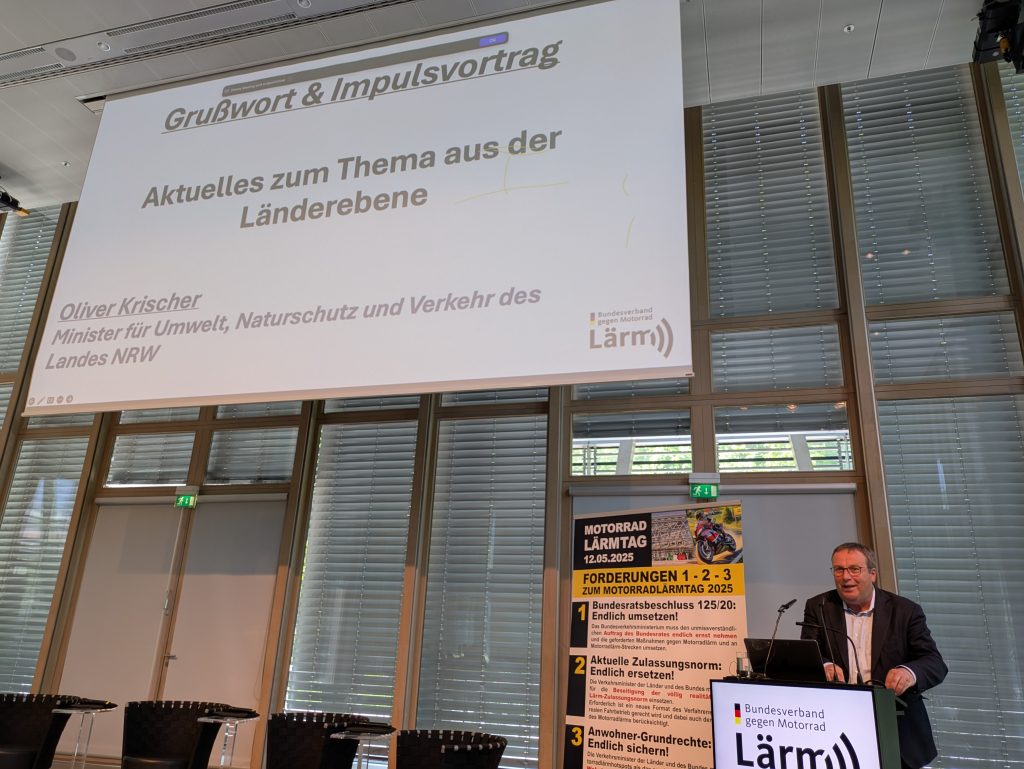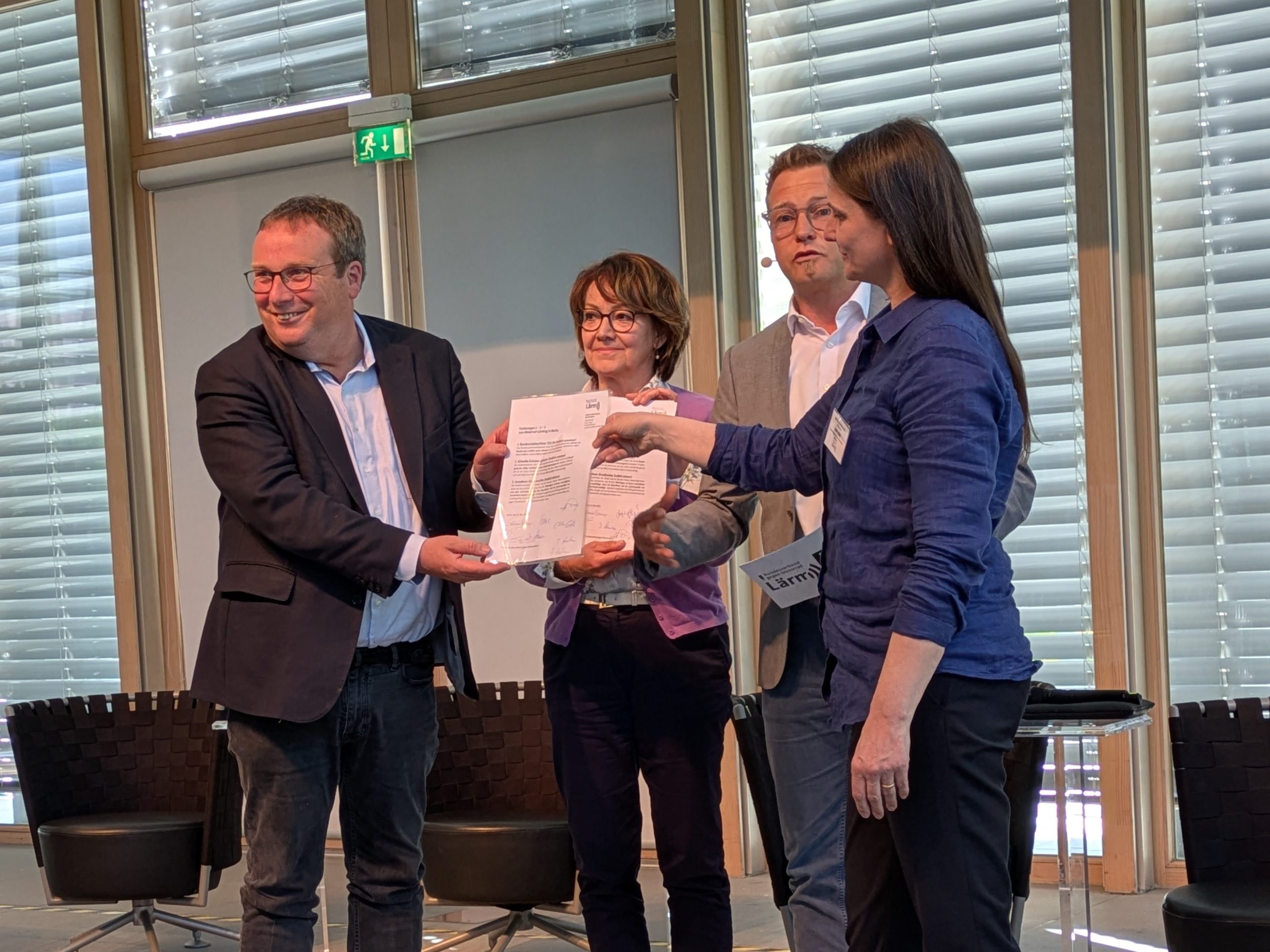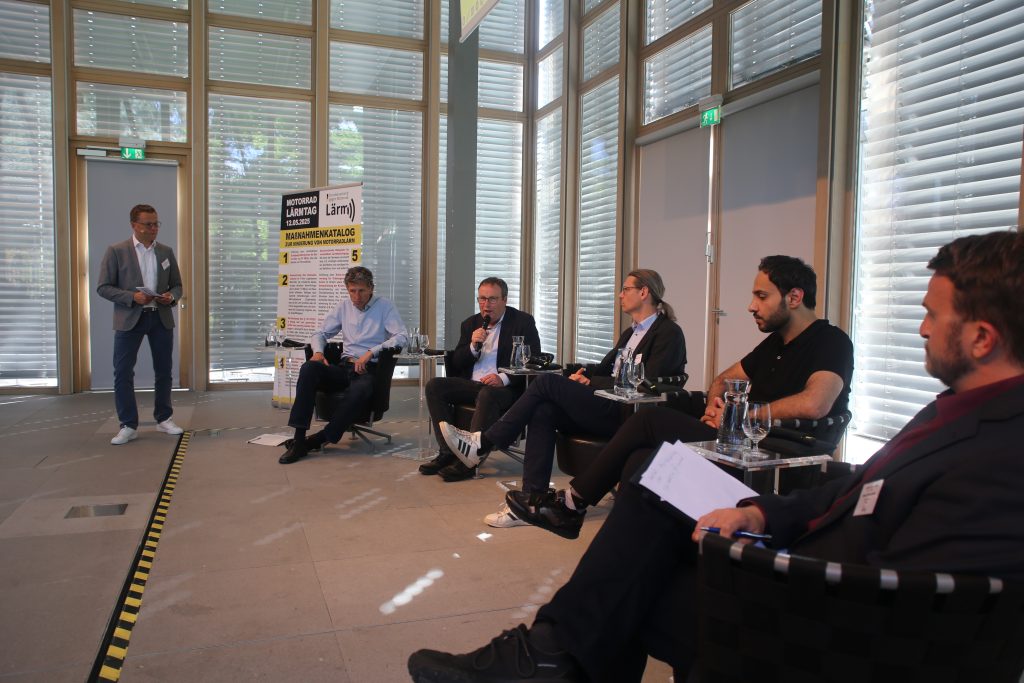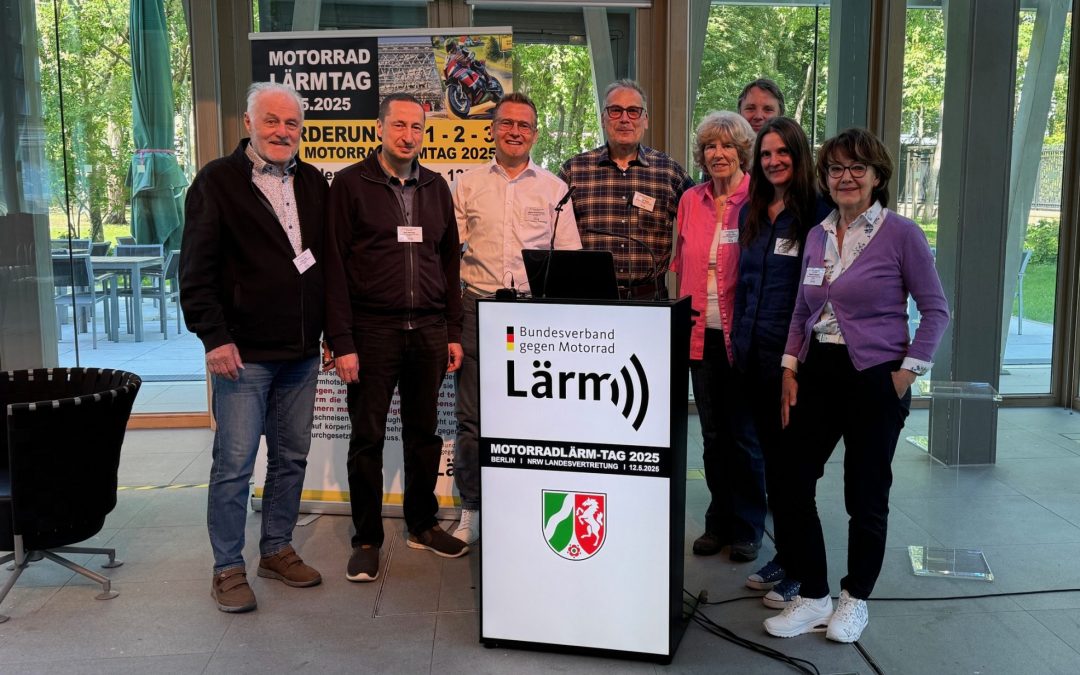LENS fostered its strong bond with the stakeholder group by presenting our project to a German audience during the “Motorrad-Lärmtag 2025” (motorcycle noise pollution day 2025), which took place on 12 May in Berlin. The awareness-raising event, which was organised by our stakeholder ‘Silent Rider’ and other German citizens’ initiative groups, showcased various studies and vivid reports from citizens. POLIS presented its position on L-vehicle pollution with a focus on urban areas and provided a complementary perspective to the experiences of citizens, which mostly highlighted challenges around noise pollution in rural areas. The engaging afternoon, which took place in the North-Rhine-Westphalian representation in Berlin, also helped to promote the upcoming LENS Final Conference on 15 October.
What was discussed?
Even though several German citizens’ initiatives gave emotional statements and illustrative material of the significant noise pollution in their regions, the overall content and tone were very calm and scientific. Thanks to several presentations ranging from the academic assessment of the noise camera pilot in Berlin, a medical perspective on the health impacts of noise pollution of airplanes and motorcycles, as well as the political position of Oliver Krischer, transport minister of North Rhine-Westphalia.
Minister Krischer compared the current L-vehicle pollution challenges with the ‘Dieselgate’ of 2015: ‘Experts assumed that automakers were manipulating their air pollution results. Once the environmental agencies were able to substantiate claims with data and the widespread fraud was picked up by the media, a significant discussion in the German and European societies began. Experts have proven that L-vehicles are exceeding the legal noise pollution framework and that illegal tampering is a significant problem, but we are currently lacking awareness’.

German citizens’ initiatives criticised that the legal framework of the Bundesrepublik doesn’t provide a sufficient base to prosecute motorcyclists who cause excessive noise pollution. Additional problems are the lack of studies, political forums that provide citizens a stage to share experiences, as well as political will from the German Länder or the federal government to address the problem on a wider scale.
Besides this diverse set of presentations, a podium discussion between political, academic and societal stakeholders aimed to further discuss potential solutions for a dialogue between harmed citizens, motorcyclists, elected officials and (inter-)national decision-makers.

Why did POLIS represent LENS during the event in Berlin?
The stakeholder engagement remains a very strong and successful pillar of the LENS project, thanks to several physical events during our pilot measurement campaign, as well as our recent stakeholder webinar in April. The exchange also provided new connections to German researchers and experts on noise pollution.


